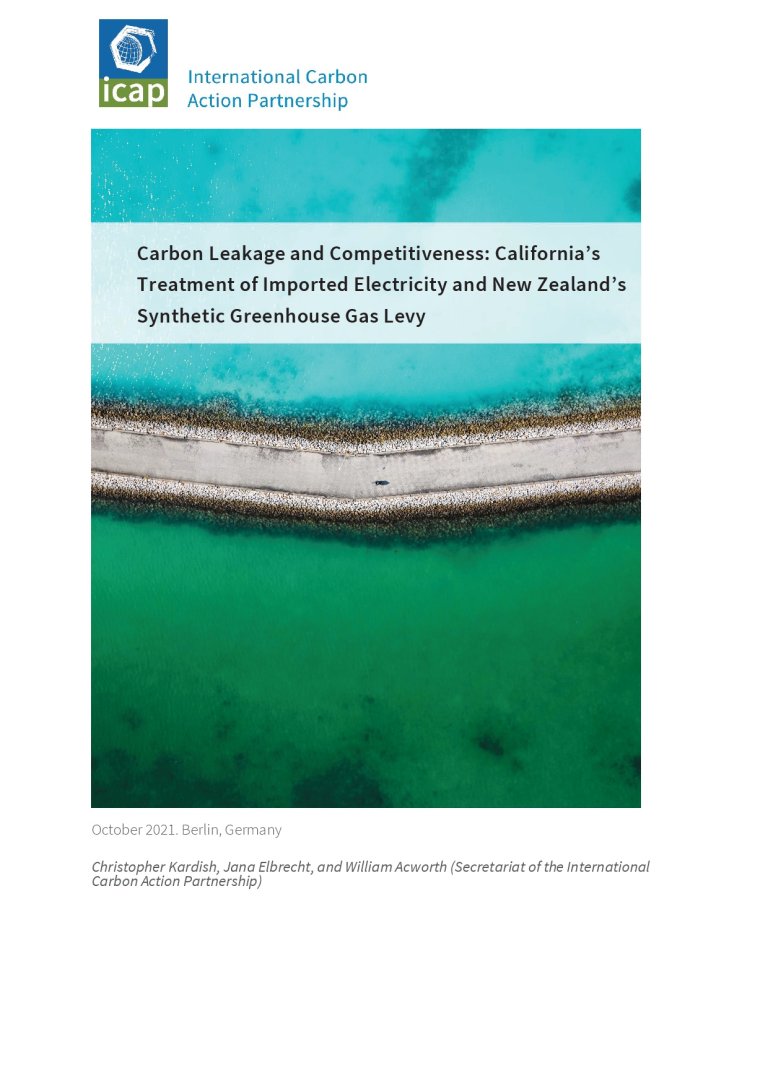Carbon Leakage and Competitiveness: California’s Treatment of Imported Electricity and New Zealand’s Synthetic Greenhouse Gas Levy


Category
Topics
Release date
Language
ETSs have addressed risks of carbon leakage by giving allowances to vulnerable industries for free, but this approach may not be suitable for all instances of leakage risk, may face increasing constraints for some jurisdictions, and is likely incompatible with the demands of deep decarbonization. Other ways of addressing leakage and competitiveness risks are therefore likely to continue attracting interest, particularly focused on cross-border trade.
Two leading ideas in policy debates are border carbon adjustments (BCAs) and consumption charges. BCAs apply tariffs or other fiscal measures on imported goods based on their embedded emissions with the aim of levelling the difference in carbon costs between jurisdictions, potentially with export rebates or exemptions for producers in the implementing jurisdiction. Consumption charges would continue free allocation to maintain leakage protections but place an additional cost at the point of consumption for both domestically produced and imported goods to better incentivize mitigation. While no jurisdiction has yet implemented a BCA or consumption charge as they are typically conceived, some have implemented measures that resemble both. This report focuses on two such examples: California’s treatment of imported electricity and New Zealand’s levy on synthetic greenhouse gases in imported goods.
Drawing from two workshops with ICAP member jurisdictions as well as policy documents and academic literature, the report highlights the key challenges in policy design and implementation. Those include measuring the GHG content of imported electricity or goods, the phenomenon of a particular type of leakage known as “resource shuffling”, establishing obligations for importers that are congruent with those of domestic entities, coordination with customs officials, and unforeseen economic impacts.
